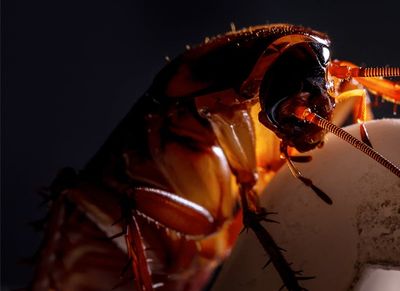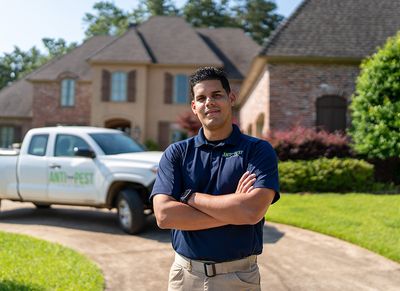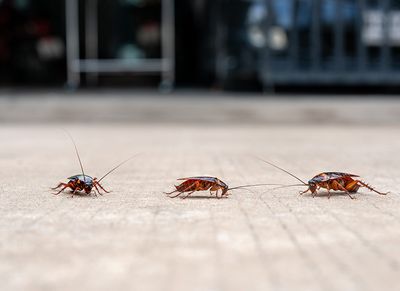What do house spiders look like?
There are several types of spiders that commonly invade houses. The most common one is the American house spider, Parasteatoda tepidariorum. This tiny brown arachnid has mottled yellow coloration on its bulbous abdomen. Females range from 3/16 to 5/16 inches in length, and males are ⅛ to 3/16 inches. If you spot one of these arachnids in your home, it will most likely be within its tangled web of fine threads. However, they typically remain out of sight and are not often seen.
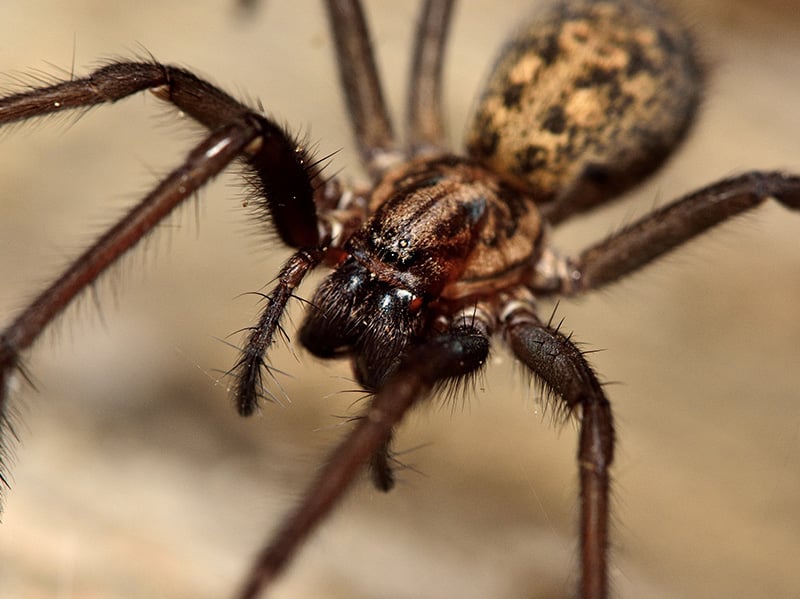
When are house spiders most active?
How do you know if it’s a house spider?
When you see a random spider zipping across your floor or climbing a wall, is there a way to tell whether or not it is a house spider? Apart from the fact that you see it in your house, no. There is no distinct difference between a spider that prefers to be indoors and one that prefers to live outside. But we do have a few common species, like the American house spider. If you're able to identify the spider you're seeing in your home, you may determine that it is a house spider based on its preferences as a species.
American House Spiders: One of the most common house spiders in Northwest Louisiana, these small-to-medium spiders build messy cobwebs in corners, closets, and garages. They stick close to their webs and follow the insects in your home. If you’re seeing them regularly, professional pest control can help identify the cause and keep their activity under control. Learn more about American house spiders.
Long-Bodied Cellar Spiders: These are often called daddy longlegs. You're most likely to find them in a garage, utility shed, barn, or dark cabinet in your home. They have tiny bodies, long legs, and thin, multi-threaded webs.
Wolf Spiders: These are large hairy spiders. If you find a big, scary-looking spider in a dark or humid location, it is likely one of these. They don't make webs to catch prey. These spiders live in holes and dark cavities.
Jumping Spiders: These small hairy spiders are often mistaken for wolf spiders. It is okay if you make that mistake, both can infest your home, and both are considered house spiders.
Brown Recluse: These are small brown spiders with a dark brown fiddle marking on the back. They don't make webs for catching prey, but you're likely to find the webs they've made. Their webs will be on the floor near gaps and cracks. They use the material as protection when they retreat.
We have other spiders in our area that can get into homes but are not considered house spiders. It is important to mention two of them. They are the black widow and the brown widow. If you see either of these, it is possible that you have an infestation, but it is more likely that it is a random encounter.
What do house spiders eat?
Spiders are predators that survive on sources of protein. Their diet consists mostly of insects, such as crickets, ants, flies, and cockroaches. If you have house spiders, it is likely that you have other pests as well. A spider wants to live where their food is found because it is concerned about the survival of its offspring.
Do house spiders bite?
Some spiders bite and some don't. Long-bodied cellar spiders are not capable of biting a human. American house spiders, wolf spiders, and jumping spiders can bite, but it is rare. Brown recluse spiders are the only house spiders that are considered medically important. They have necrotic venom.
Are house spiders dangerous?
Most bites from brown recluse spiders only result in an ulcer at the center of an itchy red wound. But there is a risk of spreading necrosis. It is important to have a physician monitor any bite that you believe is caused by a spider of this species.
Random encounters with spiders in your home can result in a more serious bite, such as a wound from a black or brown widow. They have potent venom with the potential to cause serious medical symptoms. If you routinely see house spiders, it is critical to get pest protection for the exterior of your home.
What attracts house spiders?
Food is the primary factor that motivates spiders. If you have conditions that attract insects, you'll also attract spiders. Addressing these conditions can reduce exterior pest activity and help prevent unwanted indoor encounters.
How do I get rid of house spiders?
If you've discovered spiders inside or have found them creating unsightly webs on the outside of your structure, contact Anti-Pest for help. Our team of local pest control specialists provides residential pest control and commercial pest control services that address spiders.
How do I keep spiders out of my house?
Pest proofing is your first line of defense. Make sure to seal exterior doors and windows, protect ventilation ducts, and seal gaps around utilities. You may also consider a home pest control plan. Routine visits from a licensed professional will provide unmatched protection.

Testimonials


Our Services
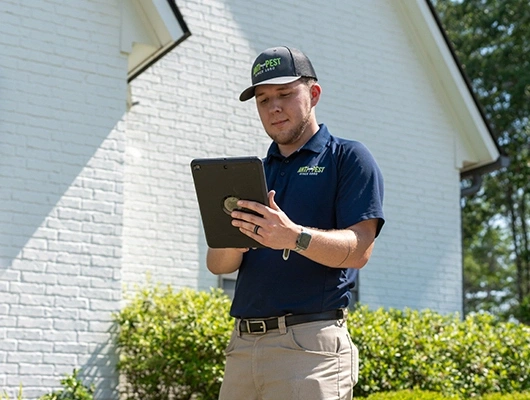
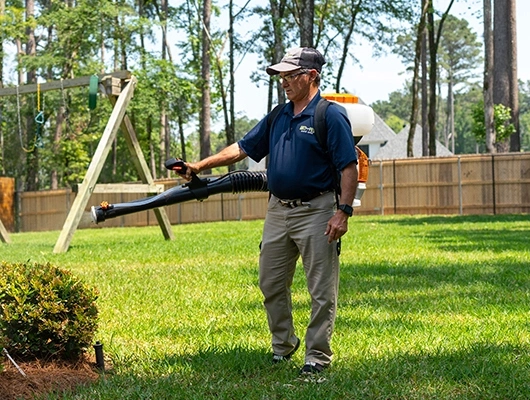
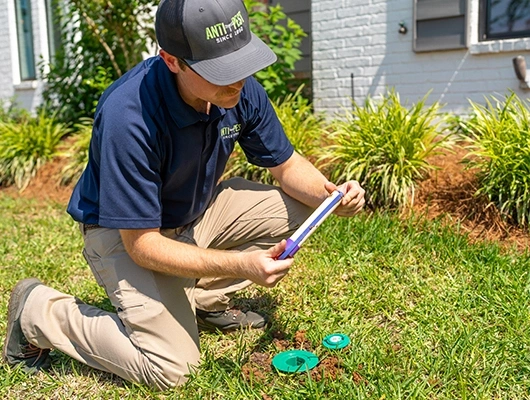

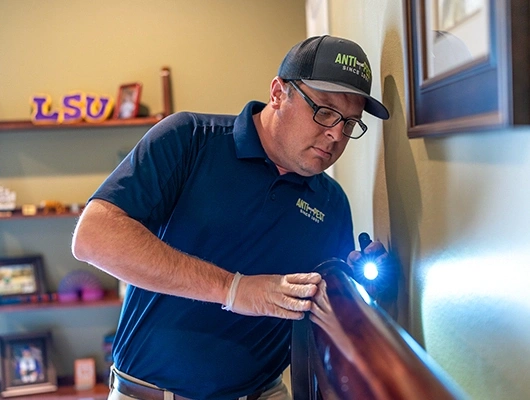
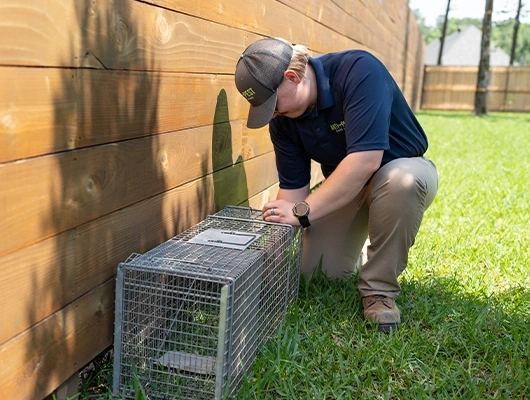
News, Blogs, & Articles
Anti-Pest Blog
